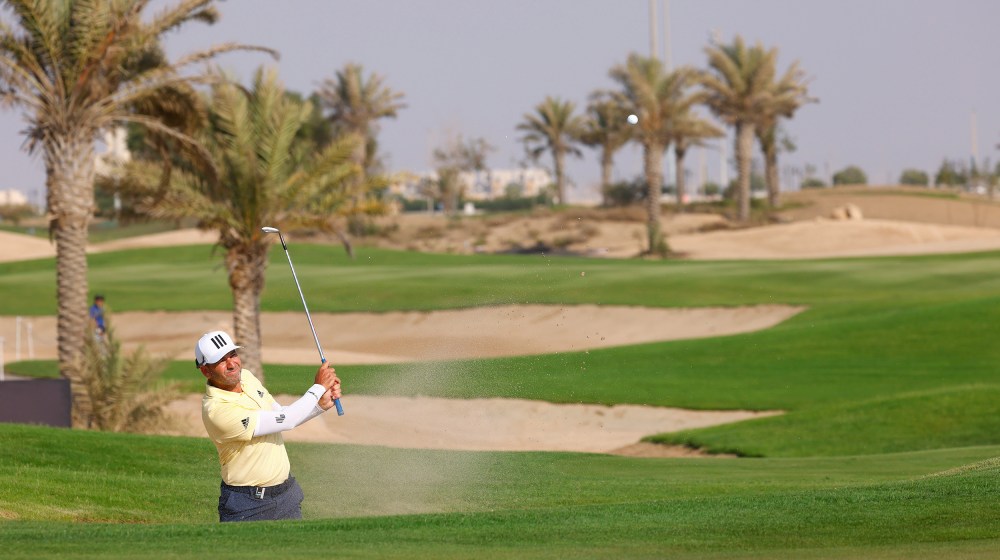Saudi Arabia made a big splash this year with something unrelated to oil, war or the shocking dismemberment of a dissident: It kicked off a golf series that turned the sport upside down.
The Saudi sovereign wealth fund-backed LIV Golf series took aim at the sport’s premier tournament organizer, the PGA Tour, by seducing decorated veterans and rising talent from around the world with the biggest pots of prize money, appearance fees and signing bonuses in the history of golf.
But the conversation around the LIV Golf series didn’t stop with questions about the propriety of using a firehose of cash to upend norms in a sport. It also prompted questions of whether Saudi Arabia was playing a game of its own by using a cultural spectacle to boost its beleaguered international reputation. A recent New York Times report based on confidential records all but proves that that was Saudi Arabia’s intent.
Saudi Arabia is attempting to use sports to become richer and grow more influential around the world.
According to the report, outside consultants to Saudi Arabia’s government effectively admitted that the golf series made little financial sense. With a limited and shrinking market, the $2 billion golf investment could easily cost Saudi Arabia lots of money, and any profits it would make are meager compared to the amount of money the fund backing it has or could hope to make by investing elsewhere. Perhaps most tellingly, according to The New York Times’ assessment of the documents, consultants with McKinsey & Company were not even “examining whether it was a strategically viable idea.” Implicitly it seems that the purpose of the consultation was about the optics of it. Given the inattention to the plausibility of the business model, it should not surprise us that the financial outlook for the series doesn’t look promising, according to the obtained documents. Despite the vast amount of money LIV has spent wooing talent and organizing tournaments, it hasn’t yet attracted any major broadcasting or sponsorship deals.
So if the LIV Golf Series doesn’t make financial sense as an investment, then why would Saudi Arabia pursue it? To curate its reputation. It’s common to characterize this kind of effort as “sportswashing,” that is, an authoritarian government’s bid to use sports to divert attention from its human rights abuses. But it’s bigger and more complicated than that. Saudi Arabia is attempting to use sports to become richer and grow more influential around the world.

The Times frames the golf investment as a way for Saudi Arabia to revive its reputation in the wake of the high-profile murder of dissident Jamal Khashoggi in 2018. While the world’s outrage at Saudi Arabia could plausibly have figured into the timing of the investment, there’s a broader context here that a focus on Khashoggi might cause people to miss. Even before Saudi Arabia brought negative attention upon itself with Khashoggi’s murder, the Saudi Crown Prince Mohammed bin Salman (MBS) had already announced a sweeping plan for reorienting and diversifying his country’s economy away from its reliance on pumping and selling oil. In a bid to prepare for life after oil, MBS had begun investing in, among other things, the tech, entertainment and tourist sectors. Putting money into sports was a part of that strategy, and in recent years Saudi Arabia has already hosted or won bids to host scores of major sports events, including tennis, soccer and boxing.
If a country like Saudi Arabia is able to become affiliated with prestigious sports and host major events, then that creates opportunities for international exposure and tourism. Over the longer term, the country might hope that its evolving brand helps attract foreign investment. (In reality, experts who focus on how countries use sports as an investment strategy say it’s hard to measure the returns on it.)
Moving aggressively into sports seems to be a regional phenomenon. Danyel Reiche, a visiting associate professor at Georgetown University in Qatar, told me he suspects Saudi Arabia may have been influenced by its neighbor to the east. Qatar has been hosting prominent international sporting events since at least 1993, when it hosted an ATP-level tennis tournament. Right now, of course, it is hosting the FIFA World Cup. While the World Cup has brought a lot of negative attention to Qatar’s horrendous human rights record, it’s also helped the country become a known player after being mostly invisible to much of the international public.












